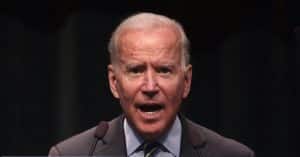Trump criticizes Zelenskyy: Tensions rise over war comments
In the latest development concerning the ongoing conflict in Eastern Europe, President Donald Trump has openly criticized Ukrainian President Volodymyr Zelenskyy for his remarks regarding the prolonged nature of the war with Russia. The statement comes amid rising tensions after a controversial meeting with Trump and other political leaders.
President Donald Trump chastised Ukrainian President Volodymyr Zelenskyy on social media for suggesting that the war with Russia is far from over, contributing to growing unease between the two nations.
In a recent series of posts, President Trump expressed strong disapproval of Zelenskyy's comments about the distant end to the ongoing war. He took to social media, characterizing the Ukrainian leader's stance as counterproductive and asserting that the United States might soon relent in its support.
U.S. officials seek apology following meeting
Following a contentious meeting with Trump and Vice President JD Vance, the White House is said to expect an apology from Zelenskyy. The meeting's discussions seemingly left U.S. leaders concerned about the current dynamics of international support.
Particularly, European leaders present at the meeting expressed their reliance on U.S. assistance in counteracting Russian aggression. Trump criticized this sentiment, which he saw as a lack of resoluteness, further straining diplomatic relations.
Leader Zelenskyy's recent interactions with other key European figures like the U.K.'s Prime Minister Keir Starmer and French President Emmanuel Macron have also been under scrutiny. However, these interactions have not quelled the tensions stemming from his comments on the ongoing conflict.
Senator calls for leadership change
Additionally, Senator Lindsey Graham has publicly voiced skepticism about Zelenskyy's leadership. He urged either a change in Zelenskyy's approach or for him to resign, suggesting new leadership could foster better negotiations with the U.S.
Graham was candid in his assessment, stating that Americans may not fully trust the Ukrainian president in partnership matters following the public disagreement. Zelenskyy, however, dismissed Graham's critique unless it came from an official Ukrainian standpoint.
The situation reached another level when Zelenskyy was unexpectedly removed from the White House. This occurred just before a significant agreement on rare earth minerals could be finalized, a move indicating unresolved tensions.
Diplomatic setbacks and future implications
Despite the setback, Zelenskyy has shown readiness to move forward and is reportedly still keen on signing the minerals agreement with the Trump administration at a later time. Such a deal would potentially bolster economic relations between the U.S. and Ukraine.
Trump, maintaining his criticism, highlighted the conversations during the meeting where European leaders' dependence on the U.S. was perceived as a weakness. He implored stronger resolve from these countries in dealing with Russia.
The events point to a critical point in U.S.-Ukrainian relations, with potential repercussions for ongoing military and diplomatic strategies against Russian actions in the region. The leadership of Ukraine must now navigate these strained relationships amid continuous domestic and international scrutiny.
Continued debate over comments' impact
Zelenskyy's words, described by Trump as the "worst statement," have invoked significant debates about their impact on the U.S.'s continued support for Ukraine. Trump's assertions that Zelenskyy does not desire peace without U.S. backing have only fueled the controversy.
As the situation unfolds, the White House's call for an apology could play a role in shaping future interactions between these nations. How Zelenskyy responds may dictate the diplomatic tone moving forward.
Senator Graham cannot intervene directly in Ukrainian politics, yet his words echo a broader apprehension within U.S. political circles. He emphasized that Americans may be uncomfortable collaborating with Zelenskyy, a sentiment that aligns with Trump's push for stronger leadership.
Responses and long-term effects on relations
Graham's further remarks about non-Ukrainians having no official voice until elections further highlight the nuanced challenges in international diplomacy. Zelenskyy's stance, coupled with Graham's response, underscores the complexity of maintaining bilateral relations.
This diplomatic impasse signaled by the abrupt termination of Zelenskyy's meeting at the White House pressures Ukraine to consider its international strategies carefully. Meanwhile, ongoing discussions about aid and partnerships remain crucial for the region's stability.
The unfolding narrative surrounding President Zelenskyy's remarks represents a pivotal moment as key players weigh the path forward. The resulting discourse will likely shape the geopolitical climate surrounding the conflict and international support for Ukraine.




